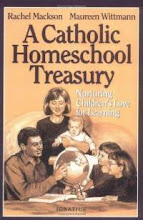This article is an excerpt from the book Why Should I Learn This. To order click here:
Paperback
eBook
Why Should I Learn Formal Logic?
Robert F. Gotcher, Ph.D.
Introduction
My seven-year old and his friend from next door are really into knights and dragons and other medieval “stuff.” They are always making shields and swords and playing with their zillions of medieval Playmobils. So imagine how surprised I was when my son came up to me and asked, “Know what my favorite weapon is? LOGIC!” Would that more people would avail themselves of this weapon!
We hear all kinds of arguments on the radio and on the internet. For instance, we might hear the following: “Carl, who says he’s a Republican, voted for the bill I don’t like. Democrats supported the same bill. Carl must be a RINO, a closet Democrat.” While it may be true that Carl has sympathies with the Democrats, his vote does not demonstrate it. He may have a completely different reason for voting for the bill. Such “arguments” are rhetorically effective in no small part because our society has ceased to study and understand the rules of basic logic. This has been noted by many observers. As Fr. John Zuhlsdorf points out, for instance, in discussing the divisions in the Church since Vatican II, “The division is made more complicated by the fact that many Catholics a) don’t know their Faith and b) can’t reason well anymore” (http://wdtprs.com/blog/2013/04/fr-scalon-on-the-unfinished-business-of-vatican-ii/, emphasis mine). Fewer and fewer people are able to take up the core weapon of good reasoning: logic.
What is Logic?
What is logic? Logic, simply put, is the art of thinking accurately. It is the systematic use of reason to discover new truths from old ones. There are several types of logic: formal, material, and symbolic. The type we are discussing is the classic formal logic of Aristotle. The heart of formal logic is the deductive inference, which is the act by which the mind establishes a connection between premises and a conclusion. The double value of formal logic is that it brings about new truths and certainty. If the premises in an argument are true and you follow the rules of logic, the conclusion must be true. The tasks of formal logic are the construction and detection of valid syllogism (formal arguments) and the detection of formal and informal fallacies (false reasoning). A formal fallacy fails to follow the rules of formal logic; an informal fallacy argues falsely by some form of distraction or distortion.
The three parts of logic are understanding, judgments, and arguments. Understanding is the ability to know what a thing is, its essence or nature—to have and create clear concepts. Since a concept is neither true nor false, we need to put them together in propositions or statements that make judgments. To make a judgment is to affirm or deny a certain relationship between two things. A judgment is either true or false. Argumentation is the process by which we come with certainty to new truths from already established truths or judgments.
Let us look at a couple of examples. First, what if someone says, “Since there was so much anti-Irish prejudice in Boston in the 19th century, when Paddy was denied a job by Wadsworth Kensington III, it must have been because he was Irish!” The fallacy in this argument is a formal one; it is called “the undistributed middle term,” as can be seen more clearly if the statement is made into a formal syllogism and illustrated by a diagram.
Some Boston Irishmen were persons who were denied work because they were Irish.
Paddy was one of the (some) Boston Irishman.
Paddy was a person who was denied work because he was Irish.
The use of “some” in a statement makes a term undistributed. Here is an illustration of the argument:
As we can see, Paddy may or may not be among those denied a job because they are Irish unless ALL Irishmen were denied jobs because they were Irish.
Formal logic also tells us that if we add “only” to the word “some,” it modifies the opposition between statements. For instance, there is a difference between the three statements “All pro-lifers are violent.” “Some pro-lifers are violent,” and “Only some pro-lifers are violent.” Only the last one necessarily includes the contradictory statement “Some pro-lifers are not violent.” If you are discussing pro-life violence, you will want to include the “only” in your argument!
What Good Is Logic?
1. Logic’s most important value is that it can help us acquire and verify the truth. When properly used, it gives certainty. Logic, and especially dialectic (a discipline of argumentation that uses logic), is associated with debate, and therefore with winning an argument. Peter Kreeft points out, however, that the value of logic is not in winning an argument, but in knowing the truth. The weapon is used primarily against falsehood, not persons (Peter Kreeft, Socratic Logic, (South Bend, IN: St. Augustine’s Press, 2005), p. 348).
2. Logic helps us study philosophy, one of the essential activities of the human mind. Traditional formal logic is the logic of the perennial philosophy of the great thinkers, which is consistent with the Catholic world view. Traditional logic is grounded in a belief that things are real, that the world has meaning and order, that our ideas of things correspond to reality, and that we can communicate real truths to each other, even if imperfectly. Modern forms of philosophy and logic deny that we can know the truth about reality. Symbolic logic, which is the dominant form of logic taught for the past century, is mathematical logic. Its only mental act is calculation. “The very nature of reason itself is understood differently by the new symbolic logic than it was by the traditional Aristotelian logic…” (Kreeft, p. 22). Symbolic logic when applied to anything beyond mathematics leads to relativistic ethics and the denial of a divinely established order in the universe.
3. Logic can help us discover some of the fallacies in our own reason and that of others. For instance, a recent Facebook post said the following: “You mean to tell me humans have energy resources such as solar power, hydroelectricity, biofuels, wind power, and geothermal energy and they kill each other over oil?” The presumption is that if we relied on other sources of energy besides oil there would be less war. This presumes that human beings wouldn’t find reasons to fight wars of solar power, hydroelectricity and biofuels. Making this into a series of formal syllogisms allows us to identify this assumption and thus call it into question.
4. Logic helps us avoid being taken in by emotionally charged rhetoric such as jargon, slogans, cant, and sound bites. The emphasis on feelings and de-emphasis on proper, logical thinking has left many Americans prey to advertisers and demagogues. Training in formal logic can help a reader or listener see the truth and falsehood of emotionally charged statements made on the editorial page, on talk radio shows, in history books, in bull sessions, and in advertisements, so he can make proper judgments about important matters.
5. Finally and most importantly, traditional formal logic can help us know and share Christ better. It is more than a coincidence that Christ is called the Logos in the Gospel of St. John. “In the beginning was the Word [Logos], and the Word was with God, and the Word was God” (Jn 1:1, RSV). The order in the universe reflects the Word himself because “all things were made through him, and without him was not anything made that was made” (Jn 1:3) and “for in him all things were created, in heaven and on earth, visible and invisible” (Col. 1:16). Any tool that can help us discern more clearly the traces of the Logos in the universe, what St. Justin Martyr called the logoi spermatikoi or “seeds of the Word” (Second Apology Ch. 8), can help us understand Christ better. When we understand Christ better as He can be known in the universe and in human nature, we can help others see Him as well. Logic becomes a tool of evangelization.
Conclusion
In a world in which so many people seem to deny the most basic truths about God, man, nature, and morality, the most powerful weapon for the truth is the Word of God as interpreted by the teachings of the Catholic Church. Yet, understanding and defending those teachings can best be done with a mind armed with the tool of natural human reason sharpened by traditional, formal logic. With logic we can gain clearer understanding of both natural and supernatural truths and thus lead others to the Truth. And, as we know, “the truth will make you free” (Jn. 8:32).
Homeschool Connections offers four courses in formal logic, Introduction to Logic, Classical Syllogistic Logic, Advanced Logic, and Fallacies and Paradoxes. Additionally, Homeschool Connections’ apologetics courses, taught by Gary Michuta, introduce formal logic to students to help them learn and defend their Catholic faith.















